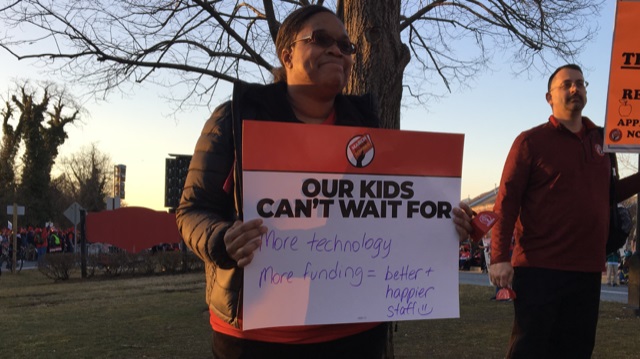Dr. Sharfstein: Pandemic Underscores Need to Improve Education for Disadvantaged Children

School-aged children are high on the list of Marylanders sacrificing for the greater good during the COVID-19 pandemic. Kept out of school for weeks, many children have desperately missed teachers and friends, lost academic and social support services, struggled to learn online, and even gone without regular breakfast and lunch.
School systems across the state are working hard to plug these gaps, but cushioning the blow to children is not enough.
That’s why the General Assembly should override Governor Hogan’s recent veto of landmark legislation that would support the educational success – and health – of Maryland children for years to come.

Dr. Joshua M. Sharfstein
The Blueprint for Maryland’s Future Act emerged from concern over the stark divides in the state’s education system. Legislators reviewed evidence from the Commission on Innovation and Excellence in Education, otherwise known as the Kirwan Commission.
The evidence showed that minority and low-income children in Maryland are far less likely than others to attend well-funded and adequately maintained schools, to be taught consistently by high quality teachers, to score highly on standardized tests, to graduate on time, and to go to college. Legislators also received reports that low-income children, particularly those in Baltimore City, have lost hundreds of thousands of hours of school-time because of deficiencies at their schools — often, failed heating and cooling systems.
These inequities in our education system have major implications for health. Long-term health outcomes, including life expectancy, are closely tied to educational attainment. Sharp educational disparities are growing larger during the pandemic. Low-income children are less likely to have access to reliable internet service and online learning. Their parents are less likely to be working at home, and more likely to be out in low-wage essential service jobs.
Many low-income children live in neighborhoods burdened by high levels of COVID-19, and some have experienced the trauma of losing parents and grandparents to the virus. These experiences will worsen divides in education and health.
Until Governor Hogan’s veto, Maryland was well positioned to fight back against the impact of the coronavirus on children’s learning and health.
The Blueprint for Maryland’s Future Act was designed to make unprecedented, and urgently needed, investments in early childhood education, promote high quality teaching, advance college readiness, and support the mental and emotional well-being of students. It particularly would have helped children at greatest risk of poor educational outcomes, and it included strong measures of accountability for school systems in spending the new funding.
The Legislature also passed legislation to address major gaps in maintenance of schools, providing substantial increases in resources for construction to correct school deficiencies. These funds, however, were tied to the enactment of the Kirwan Commission legislation.
Governor Hogan justified his veto on the grounds that the state cannot afford to make new investments in education at this time of fiscal uncertainty. But, to slow spending, his veto was unnecessary. The Blueprint for Maryland’s Future Act already included a provision that would automatically limit new funding to the rate of inflation during years when state revenues were projected to decline substantially.
If only for their sacrifices during the pandemic, children deserve the support provided by the Blueprint for Maryland’s Future Act. More fundamentally, pandemic or no pandemic, all children deserve opportunity. When the General Assembly reconvenes, legislators should override the governor’s veto and follow through on their commitment to equity and fairness in education.
— DR. JOSHUA M. SHARFSTEIN
The writer is a pediatrician and Professor of the Practice in Health Policy and Management at the Johns Hopkins Bloomberg School of Public Health. He served as the Secretary of Maryland’s Department of Health and Mental Hygiene from January 2011 through December 2014. The views expressed are his and do not necessarily represent the position of Johns Hopkins.




 Creative Commons Attribution
Creative Commons Attribution